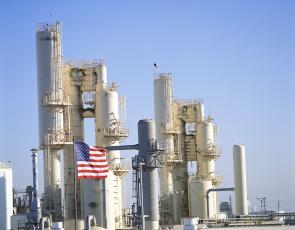Congress, regulators, and industry should collaborate to enhance energy product reliability programs and regulations at existing agencies, rather than complicating matters through the creation of a new, duplicative reliability regulator.
Washington, DC, January 19, 2021—The American Gas Association (AGA), American Fuel & Petrochemical Manufacturers (AFPM), American Petroleum Institute (API), American Public Gas Association (APGA), Association of Oil Pipe Lines (AOPL), GPA Midstream Association, Interstate Natural Gas Association of America (INGAA), and Natural Gas Supply Association (NGSA) issued the below statement in advance of today’s House Energy & Commerce Committee hearing on H.R.6084, the Energy Product Reliability Act.
“Our organizations share the Committee’s commitment to ensuring the safe and reliable delivery of energy, which is of critical importance to us and American families and businesses that depend on us every day. Our industries have performed resiliently and enabled energy reliability during numerous extreme weather events, as discussed further in our letterto the Committee on December 7th. However, we remain concerned that any proposal designed to create a new, additional pipeline reliability regulator will not effectively promote pipeline reliability, given that it will create duplicative and conflicting authority with existing federal and state agency regulatory programs.
H.R. 6084 conflicts with current reliability programs and regulatory requirements. FERC, PHMSA, TSA and DOE each have existing authorities and programs to promote reliability. DOI, BOEM, BLM and other agencies have authority over energy production. State and local regulators have authority over intrastate natural gas pipelines and local gas distribution systems. Inserting a new regulatory entity into this mix without addressing existing regulatory challenges, including capacity constraints resulting from federal and state permitting obstacles, would not be helpful in accomplishing the Committee’s stated goals. However, we are committed to collaborating with the Committee, regulatory agencies, and other stakeholders to enhance existing programs to better protect our critical infrastructure and ensure the continued safe and reliable transportation of energy across our nation
H.R. 6084 also duplicates existing cybersecurity requirements. The cybersecurity standard-setting authority that this legislation would give to the proposed Energy Product Reliability Organization (EPRO) duplicates existing and forthcoming TSA pipeline cyber and physical security requirements. Last summer, TSA issued two pipeline cybersecurity Security Directives in response to recent incidents and will soon undertake a rulemaking to establish a permanent program. Congress risks disrupting these cybersecurity efforts by granting duplicative authority to EPRO and FERC.”


